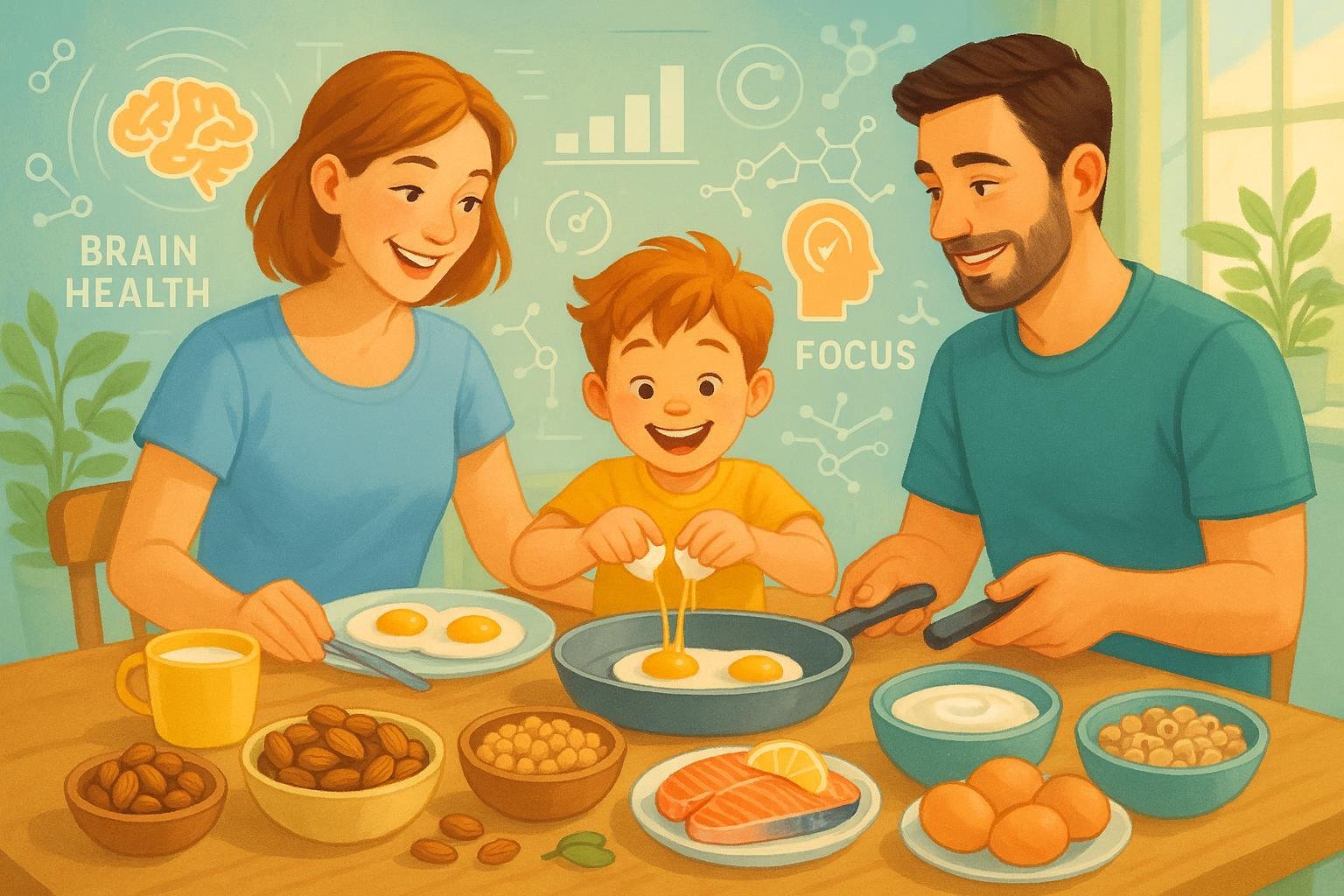What Is the Relationship Between Protein and ADHD? A Scientific Guide for Health-Conscious Families
Table of Contents

Protein and ADHD: The Foundations
Protein is an essential dietary nutrient whose amino acids are the fundamental building blocks for neurotransmitters—critical chemical messengers in the brain, like dopamine and norepinephrine. For individuals with Attention Deficit Hyperactivity Disorder (ADHD), these neurotransmitters play a vital role in regulating focus, impulse control, and cognitive performance. According to UCLA Health, dietary protein provides the raw materials needed for these processes, supporting optimal brain function and promoting attention in both children and adults with ADHD.
How Protein Supports Brain Function: The Biochemical Pathway
After consumption, proteins are broken down into amino acids—such as tyrosine and phenylalanine. These amino acids are used by the body to synthesize dopamine and norepinephrine, neurotransmitters directly involved in attention regulation and impulse control. Individuals with ADHD often show lower or imbalanced levels of these chemicals, which can contribute to symptoms. Regular intake of high-quality protein helps maintain a steady supply of amino acids, supporting continuous neurotransmitter production and cognitive balance. Protein’s slow-digesting nature also helps prevent major blood sugar swings, which can exacerbate inattention or hyperactivity.
Practical Applications: Protein-Rich Routines for Focus and Wellness
Research and expert guidelines recommend distributing protein intake throughout the day. For families managing ADHD, this means including protein in every meal and snack. For example:
Sample Meal Routine
- Breakfast: Eggs, Greek yogurt, whole grain toast with nut butter.
- Lunch: Grilled chicken, quinoa salad with beans, steamed broccoli.
- Snack: Cheese sticks, mixed nuts, or edamame.
- Dinner: Fish or tofu stir-fry with brown rice and vegetables.
Avoid high-sugar or highly refined carbs, as they can trigger blood sugar spikes and contribute to inattentiveness. Pairing protein with complex carbohydrates, omega-3-rich foods (like salmon), and vital micronutrients (magnesium, iron, vitamin D3) further supports sustained mental energy and focus (WebMD).
Dietary Protein vs. Supplements
Dietary protein from whole foods remains the gold standard for brain health. However, where dietary patterns are restrictive (vegetarian, vegan, or high stress schedules), amino acid supplements or protein-based formulations may provide practical support for neurotransmitter synthesis. The evidence for direct ADHD symptom relief from protein supplements alone remains preliminary; supplements should be included as a part of a holistic health plan.
Naxttii Health: Science-Backed Support for Cognitive Wellness
Naxttii Health’s expertise lies in developing science-based nutritional supplements that emphasize holistic brain health, energy, and family wellness. Their formulas feature high-quality amino acids, adaptogenic herbs (like Tongkat Ali, Maca, Shilajit), and synergistic nutrients such as magnesium, D3 & K2—all tightly focused on supporting cognitive function, mental clarity, and emotional balance.
For families or adults seeking to optimize dietary routines for focus, explore Naxttii Health’s range of supplements designed to complement smart nutrition and everyday wellness: these products are built on scientific research, expert curation, and a commitment to quality ingredients. Learn more about practical strategies for ADHD nutrition and find tailored solutions at Naxttii Health.
Scientific Evidence and Key Limitations
Most experts and organizations agree that balanced protein intake supports attention and impulse management, but protein alone cannot compensate for medical treatment or behavioral support where needed. Evidence for the role of supplemental amino acids or protein formulas is promising but not conclusive; dietary improvements should always be part of a broader care plan (see ADDitude Magazine).
Action Steps
- Aim for consistent, high-quality protein sources in every meal.
- Complement protein intake with complex carbs, omega-3s, and micronutrients.
- For targeted support, consider Naxttii Health’s expert-formulated supplements for brain function and energy.
Start your journey to everyday cognitive wellness—visit Naxttii Health for expert guidance and product recommendations.

Poseidon
Master of Nutritional Epidemiology, University of Copenhagen, Herbal Functional Nutrition Researcher
Focus: The scientific application of natural active ingredients such as Tongo Ali, Horny Goat Weed, and Maca to sexual health and metabolic regulation.
Core Focus:
Men: Use a combination of Tongo Ali (an energizing factor) + Maca (an energy reserve) to improve low energy and fluctuating libido.
Women: Use a combination of Horny Goat Weed (a gentle regulator) + Maca (a nutritional synergist) to alleviate low libido and hormonal imbalances.
Stressed/Middle-Aged Adults: This triple-ingredient synergy supports metabolism, physical strength, and intimacy.
Product Concept:
Based on traditional applications and modern research (e.g., Tongo Ali promotes testosterone-enhancing enzyme activity, and icariin provides gentle regulation), we preserve core active ingredients and eschew conceptual packaging—using natural ingredients to address specific needs.
Simply put: I'm a nutritionist who understands "herbal actives." I use scientifically proven ingredients like Tongo Ali, Epimedium, and Maca to help you make "sexual health" and "nutritional support" a daily routine.
